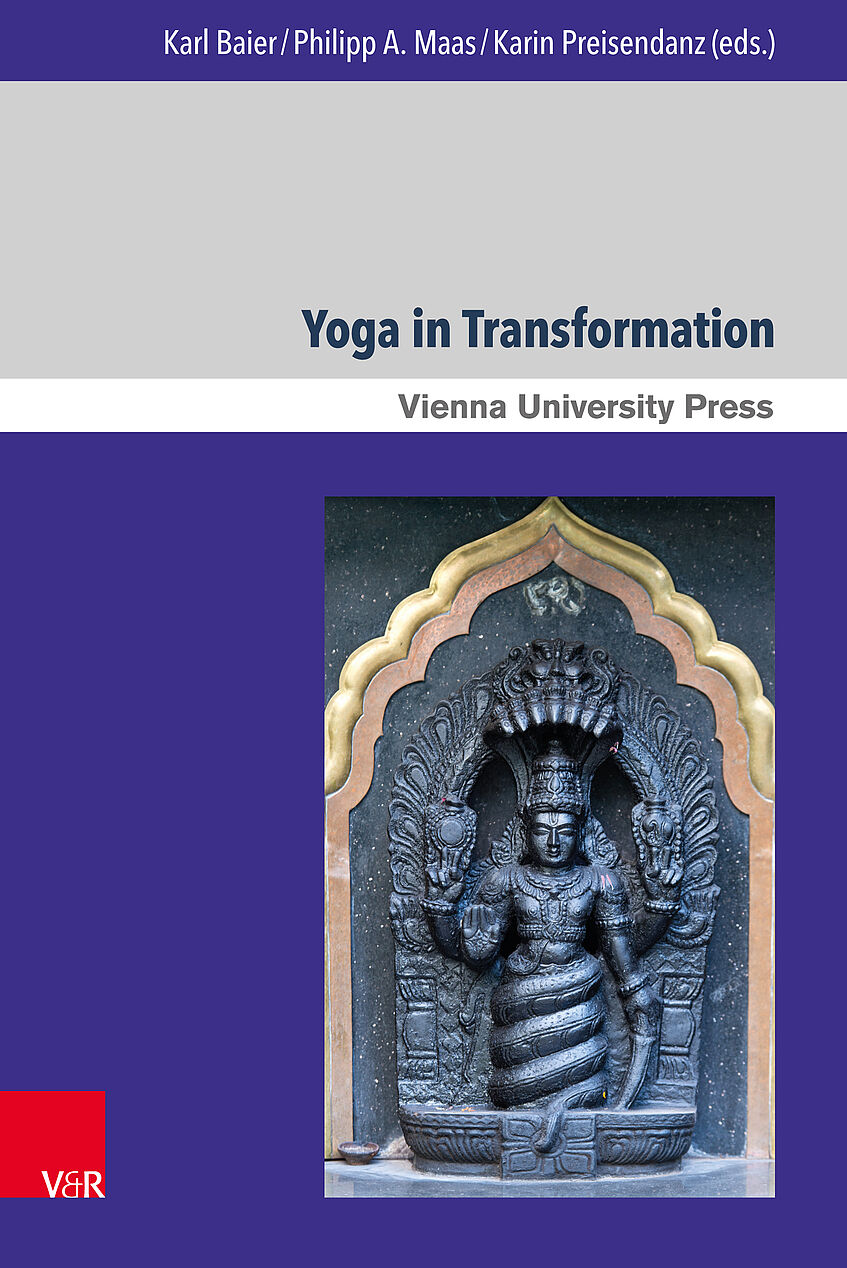Yoga in Transformation

Yoga in Transformation
Karl Baier / Philipp A. Maas / Karin Preisendanz (eds.)
Yoga in Transformation
Historical and Contemporary Perspectives
Wiener Forum für Theologie und Religionswissenschaft, Vol. 16, 2018, 630 pages with 55 figures
hardcover € 85,– D / € 88,– A
ISBN 978-3-8471-0862-7
Vienna University Press by V&R unipress
This is an open access title and available at www.vandenhoeck-ruprecht-verlage.com.
The starting point of this volume was a conference on “Yoga in Transformation: Historical and contemporary Perspectives on a Global Phenomenon” which was held at the University of Vienna from 19-21 September 2013 and organized by the three editors.
The book explores aspects of yoga over a period of about 2500 years and comprises, in addition to an introduction by the editors, sixteen chapters in two parts.
Its first part, “Yoga in South Asia and Tibet”, is mainly devoted to the philological–historical study of various aspects of premodern yoga on the basis of primary sources composed in several South Asian languages, Arabic and Tibetan. It consists of eight chapters by Dominik Wujastyk, Philipp A. Maas, Jason Birch, James Mallinson, Marion Rastelli, Catharina Kiehnle, Philipp A. Maas and Noémie Verdon, and Ian Baker, respectively, who investigate facets of the South Asian and Tibetan traditions of yoga, such as the evolution of posture practice, the relationship between yoga and sex, yoga in the theistic context, the influence of Buddhism on early Yoga, and the encounter of Islam with classical Yoga.
The second part, “Globalised Yoga”, contains eight chapters by Karl Baier, Joseph Alter, Maya Burger, Anand Amaladass, Beatrix Hauser, Anne Koch, Suzanne Newcombe, and Gudrun Bühnemann, respectively. Their contributions explore aspects of modern and post-modern forms of global yoga primarily on the basis of sources written in European languages and with multiple methods, and address aspects of modern globalised yoga and its historical formation, as for example the emergence of yoga in Viennese occultism, the integration of yoga and nature cure in modern India, the eventisation of yoga in a global setting, and the development of Patañjali’s iconography.
In keeping with the current trend in yoga studies, the emphasis of the volume is on the practice of yoga and its theoretical underpinnings.
The editors
Karl Baier is Head of the Department of Religious Studies, University of Vienna.
Philipp A. Maas is Research Associate at the Institute for Indology and Central Asian Studies, University of Leipzig.
Karin Preisendanz holds the Chair of Indology at the Department of South Asian, Tibetan and Buddhist Studies, University of Vienna.
